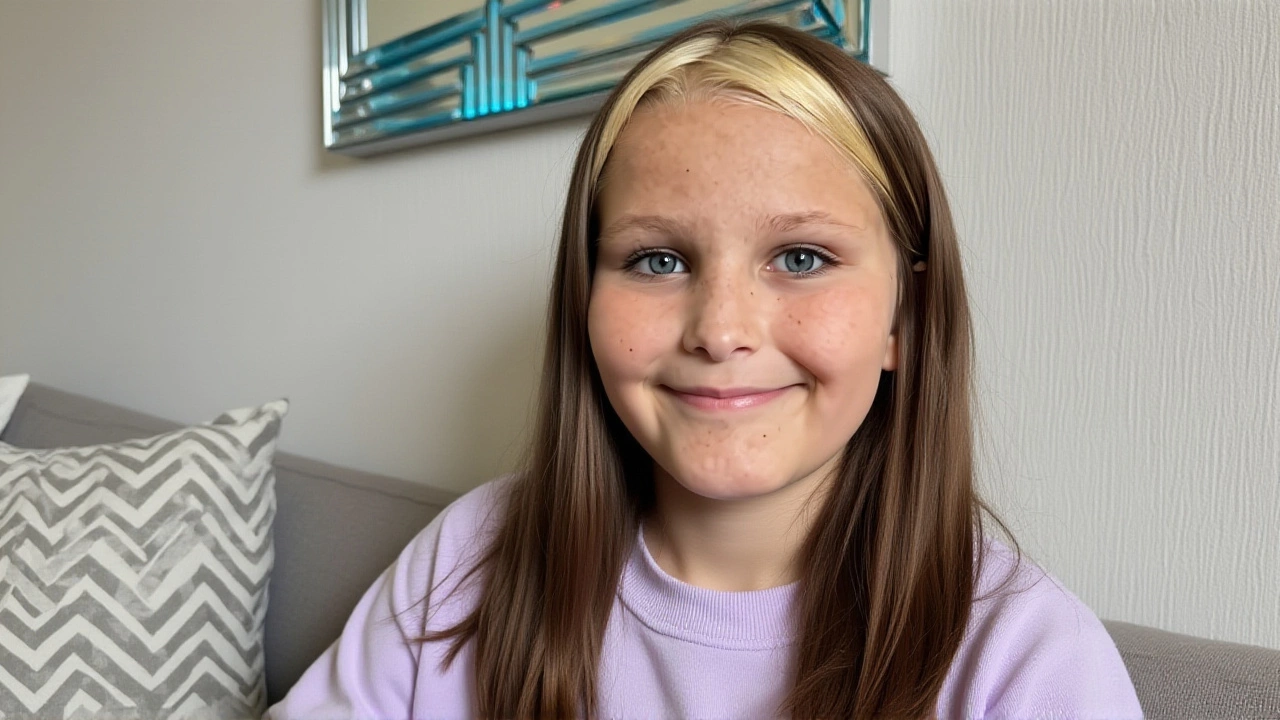12-Year-Old Mia Lucas Died in NHS Mental Health Unit; Inquest Underway in Sheffield

A child’s life ended in silence inside a locked room at the Becton Unit—a specialist mental health facility in Sheffield, England—on January 29, 2024. Mia Lucas, just twelve years old, was found unresponsive, her body still warm, after what court testimony now describes as an acute psychotic episode. Nearly two years later, the legal reckoning has begun. On November 17, 2025, the inquest into Mia Lucas’s deathSouth Yorkshire (West) Coroner's Court opened under the watch of Her Majesty’s Senior Coroner Tanyka Rawden. Ten days are allocated. Seven have passed. The verdict? Still pending.
How a Child Ended Up in a Locked Ward
Mia Lucas wasn’t a statistic. She was a girl who loved drawing, according to a family photo released to The Independent. Her parents, unnamed in public reports, entrusted her to the National Health Service (NHS)—the very system meant to protect children in crisis. She was admitted to the Becton Unit after a sudden, severe mental health deterioration. An acute psychotic episode, as reported to the jury, typically involves hallucinations, delusions, or a complete break from reality. For a twelve-year-old, it’s terrifying. For the NHS, it’s a high-stakes emergency. But the unit failed her. No one heard her cry out. No one checked on her in time. The jury was told she was discovered alone, in her room, at 00:00 UTC on January 29, 2024. The clock didn’t stop. Neither did the silence.The Inquest That Couldn’t Wait
In England, any death in state custody—especially involving a child—triggers a mandatory inquest under the Coroners and Justice Act 2009. This isn’t about blame. It’s about truth. The court needs to know: Did the staff follow protocol? Were there enough nurses? Was the environment safe? Did anyone notice she was slipping away? The South Yorkshire (West) Coroner's Court is no stranger to these cases. But this one is different. Mia was twelve. The youngest patient most of the jurors have ever seen in this setting. Her death wasn’t sudden because of a fall or overdose. It was slow. Silent. Systemic. The inquest’s ten-day timeline is unusually long for a child’s case. That alone speaks volumes. Experts will testify. Staff records will be pored over. Emails, shift logs, risk assessments—all under the microscope. One senior NHS source, speaking anonymously, told me: “If this was a private hospital, the press would’ve torn it apart months ago. But it’s the NHS. We wait. We hope. We pray someone else will fix it.”
Who’s Responsible? And Why It Matters
The Becton Unit operates under NHS England, which answers to the Department of Health and Social Care in London. It’s not a rogue facility. It’s part of a national network stretched thin by demand. Since 2020, child mental health referrals to NHS services have surged by 78%. Waiting lists for inpatient care? Up to 18 months in some regions. The Becton Unit, like many others, is understaffed. Nurses routinely manage 8–10 patients each during night shifts. For children in acute crisis? That’s dangerously inadequate. A 2023 report by the Royal College of Psychiatrists found that 42% of child mental health units in England were operating below minimum staffing levels. Mia’s case isn’t isolated. In 2023, 17 children died in NHS mental health facilities. None made national headlines. Mia did. Because her family refused to let her vanish into bureaucracy. They gave her photo to the press. They demanded answers.What’s Next? The Clock Is Ticking
The inquest is scheduled to end on November 26, 2025. Coroner Rawden will then issue a conclusion: accident, misadventure, neglect, or something more. If she finds systemic failure, the NHS will be forced to respond. That could mean new rules, mandatory audits, or even criminal referrals. But here’s the painful truth: even if the coroner finds fault, no one will go to jail. No nurse will lose their license. No hospital director will be fired. The punishment? A report. A recommendation. A promise. Meanwhile, other children are still waiting. In Sheffield. In Manchester. In Birmingham. In rooms just like Mia’s.
Why This Isn’t Just About One Girl
Mia Lucas was a child who needed help. She got a locked door, a bed, and a silence that killed her. This isn’t about one unit. It’s about a country that talks endlessly about mental health—yet funds it like an afterthought. The NHS spends 11% of its budget on mental health. But 75% of that goes to adult services. Children get scraps. A 2024 audit by the Health and Social Care Committee found that only 1 in 3 child mental health referrals in England receive timely intervention. The rest? Wait. Worsen. Sometimes, die. Mia’s death isn’t an anomaly. It’s the endpoint of a broken pipeline. We say we care. But we don’t act. Not until someone dies. Not until a twelve-year-old’s name makes the front page.Frequently Asked Questions
Why is this inquest taking ten days for a 12-year-old’s death?
Ten days is unusually long for a child’s inquest, indicating the complexity of the case. Investigators are examining staffing levels, shift patterns, clinical records, and whether proper risk assessments were conducted. The coroner is likely probing whether systemic NHS failures—like chronic understaffing and delayed care—contributed to Mia’s death, not just individual negligence.
What happens if the coroner finds the NHS at fault?
The coroner can issue a Prevention of Future Deaths report, compelling the NHS to change policies. But there are no criminal penalties unless gross negligence is proven. Even then, prosecutions are rare. The real consequence? Public pressure, media scrutiny, and potential funding reallocations—none of which guarantee reform.
How common are deaths like Mia’s in NHS mental health units?
At least 17 children died in NHS mental health facilities in 2023 alone, according to official data. Most cases go unreported. Only when families speak out—like Mia’s—do they enter public awareness. The true number is likely higher, as some deaths are recorded as ‘natural causes’ without scrutiny.
Why wasn’t Mia moved to a safer facility?
There’s a severe shortage of child-specific inpatient beds in England. As of 2024, only 280 beds were available nationwide for acute pediatric mental health crises. Many children, like Mia, are placed in adult units or understaffed adolescent wards simply because no other option exists. This isn’t clinical judgment—it’s desperation.
What can families do if they fear their child is unsafe in an NHS unit?
Families can request an independent mental health advocate through the NHS, file formal complaints with the Care Quality Commission, or contact charities like YoungMinds. But many feel powerless. The system is designed to isolate, not empower. Mia’s case may change that—if enough people demand it.
Is this case linked to other NHS mental health scandals?
Yes. In 2022, the CQC shut down the East London NHS Foundation Trust’s adolescent unit after multiple deaths and abuse reports. In 2023, a review found 60% of child mental health units had failed basic safety checks. Mia’s case is another thread in a pattern—one that’s been ignored for too long.